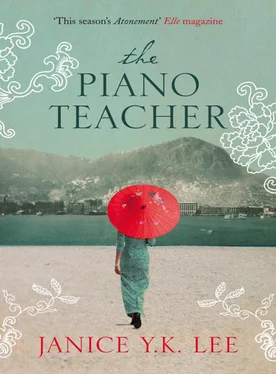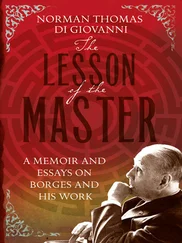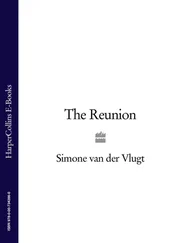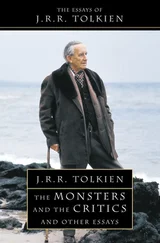1 ...7 8 9 11 12 13 ...17 She tumbled out the contents.
There were more than thirty items glittering up at her. More than thirty costly necklaces, scarves, ornaments, perfume bottles. They looked almost tawdry, jumbled together in the harsh bathroom light, against the white tiles, so Claire laid down a towel and separated them, so that each had a few inches of space, a cushion against the floor. There. Now they looked like the expensive items they were. Here was a ring, thick, beautifully worked gold, with what was probably turquoise. She slipped it on to her finger. And here was a handkerchief, so sheer she could see the pale pink of her palm underneath it. She sprayed it with perfume, a small round bottle of it, called Jazz. On the bottle, there was a drawing of two women dancing in flapper dresses. She waved the scented handkerchief around. Jasmine. Too heavy. She did her hair with the tortoiseshell comb, rubbed French hand lotion into her fingers, then carefully applied lipstick. Then she clipped on heavy gold earrings and tied a scarf round her head.
She stood in front of the mirror. The woman who looked back was sophisticated and groomed, a woman who travelled the world and knew about art and books and yachts.
She wanted to be someone else. The old Claire seemed provincial, ignorant. She had been to a party at Government House, sipped champagne at the Gripps while women she knew twirled around in silky dresses. She had her nose pressed up against the glass and was watching a different world. She could not name it but she felt as if she was about to be revealed, as if there was another Claire inside, waiting to come out. In these few hours in the morning, dressed in someone else’s finery, she could pretend she was part of it, that she had lived in Colombo, eaten frog’s legs in France or ridden an elephant in Delhi with a maharajah by her side.
At seven, after she had brewed herself a cup of tea and eaten some buttered toast, she made her way to the bedroom. She stood over her sleeping husband.
‘Wake up,’ she said quietly.
He stirred, then rolled over to face her.
‘Cuckoo,’ she said, a little louder.
‘Happy birthday, darling,’ he said sleepily. He propped himself up on one elbow to offer a kiss. His breath was sour but not unpleasant.
Claire was twenty-eight today.
It was Saturday, and the beginning of summer. Not too hot yet, the mornings had a breeze and a little bit of cool before the sun warmed the afternoons and the hats and fans had to come out. Martin worked a half-day on Saturday but then there was a party at the Arbogasts’, on the Peak. Reginald Arbogast was a very successful businessman and made a point of inviting every English person in the colony to his gatherings, which were famous for his unstinting hand and lavish foods.
‘I’ll meet you at the funicular at one,’ Martin told her.
At one o’clock, Claire was at the tram station waiting. She had on a new dress the tailor had delivered just the day before, a white poplin based on a Paris original. She had found a Mr Hao, an inexpensive man in Causeway Bay, who would come and measure her at home and charge eight Hong Kong dollars a dress. It had turned out quite well. She had sprayed on a bit of Jazz, although she found it strong; she dabbed it on, then rubbed water on it to dilute the smell.
At ten past one, Martin came through the station doors, and gave her a kiss. ‘You look nice,’ he said. ‘New dress?’
‘Mm-hmm,’ she said.
They took the tram up the mountain, a steep ride that seemed almost vertical at times. They held on to the rail, leaned forward and looked outside, where they could see into people’s homes in the Mid-Levels, with curtains pushed to one side, and newspapers and dirty glasses strewn on tables.
‘I would think,’ Claire said, ‘that if I knew people would be looking in my house all day from the tram, I’d make a point of leaving it tidy, wouldn’t you?’
At the top, they found that the Arbogasts had hired rickshaws to take their guests to the house from the station. Claire climbed into one. ‘I always feel for the men,’ she said quietly to Martin. ‘Isn’t this why we have mules or horses? It’s one of these queer Hong Kong customs, isn’t it?’
‘It’s a fact that human labour here often costs less,’ Martin said.
Claire stifled her irritation. Martin was always so literal.
The man lifted up the harness with a grunt. They started to roll along and Claire settled into the uncomfortable seat. Around them, the green was overwhelming, tropical trees bursting with leaves that dripped when scratched, bougainvillaea and other flowering bushes springing from the hillsides. Sometimes, she got the feeling that Hong Kong was too alive. It seemed unable to restrain itself. There were insects crawling everywhere, wild dogs on the hills, mosquitoes breeding furiously. They had made roads in the hillsides and buildings sprouted out of the ground, but nature strained at her boundaries – there were always sweaty, shirtless men chopping away at the greenery that seemed to grow overnight. It wasn’t India, she supposed, but it certainly wasn’t England. The man in front of her strained and sweated. His shirt was thin and grey.
‘The Arbogasts apparently had this place undergo a massive cleaning after the war,’ Martin said. ‘Smythson was telling me about it, how it had been gutted by the Japanese and all that was left was walls, and not many of those. It used to belong to the Bayer representative out here, Thorpe, and he never came back after he was repatriated after the war. He sold it for a song. He’d had enough.’
‘The way people lived out here before the war,’ Claire said. ‘It was very gracious.’
‘Arbogast lost his hand during the war as well. He has a hook now. They say he’s quite sensitive about it so try not to look at it.’
‘Of course,’ Claire said.
When they walked in, the party was in full swing. Doors opened on to a large receiving room, which led into a drawing room with french doors that looked over a lawn with a wide, stunning view of the harbour. A violinist sawed away at his instrument while a pianist accompanied him. The house was decorated in the way the English did their houses in the Orient, with Persian carpets and the occasional wooden Chinese table topped with Burmese silver bowls and other exotic curiosities. Women in light cotton dresses swayed towards each other while men in safari suits or blazers stood with hands in pockets. Swiftly moving servants balanced trays of Pimm’s and champagne.
‘Why does he do this?’ Claire asked Martin. ‘Invite the world, I mean.’
‘He’s done well for himself here, and he didn’t have much before, and wants to do something good for the community. What I’ve heard, anyway.’
‘Hello, hello,’ said Mrs Arbogast from the hall where she was greeting guests – a thin, elegant woman with a sharp face. Sparkly earrings jangled from her ears.
‘Lovely of you to have us,’ said Martin. ‘A real honour.’
‘Don’t know you, but perhaps we shall have the pleasure later.’ She turned aside, looking for the next guest. They had been dismissed.
‘Drink?’ Martin said.
‘Please,’ said Claire.
She saw an acquaintance, Amelia, and walked over. Too late, she saw that Mrs Pinter was in the circle, partially hidden by a potted plant. They all tried to avoid Mrs Pinter. Claire had been cornered by her before, and had spent an excruciating thirty minutes listening to the old woman talk about ant colonies. She wanted to be kind to older people but she had her limits. Mrs Pinter was now obsessed with starting up an Esperanto society, and would reel unwitting newcomers into her ever more complicated and idiotic plans. She was convinced that a universal language would have saved them all from the war.
Читать дальше












